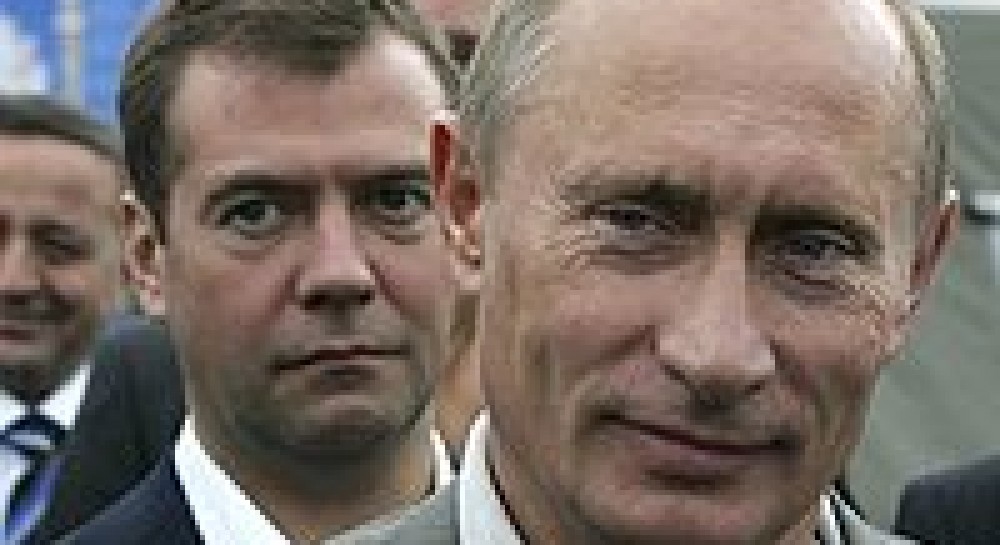
Dmitri Medvedev: the long hello
Russian voters already know what to expect from the Putin-Medvedev double act. As Prime Minister Mr Putin will retain day-to-day control of the economy, and he has promised more of the tight state control of key industries...
Soon after midday today Dmitri Medvedev will accept the chain of office of the Russian presidency in front of 2,400 members of the loyal political elite who have helped make this apparently seamless transfer of power possible. Ten days later he will attend the Champions` League final in the Luzhniki Stadium, Moscow. This will be Russia`s first truly international sporting event since the 1980 Olympics. The participating clubs may both be English, but the TV audience will be global and the best seats will be filled by the captains of European business. For the new President, this is the audience that matters most.
Russian voters already know what to expect from the Putin-Medvedev double act. As Prime Minister Mr Putin will retain day-to-day control of the economy, and he has promised more of the tight state control of key industries that has delivered steady growth of incomes (and corruption) for eight years. Mr Medvedev, meanwhile, will be the new international face of Russia. His predecessor projected a thinly veiled nationalism abroad, which served him well at home. But an antagonistic relationship with the West is not in ordinary Russians` long-term interests, as Mr Medvedev appears to understand. His youth and background - as a lawyer, rather than a spy - have raised hopes of a significant change in tone in foreign policy. Whether he can reopen his country to the world will be his first big test.
It is a considerable challenge. Mr Putin leaves the Kremlin proud of the stability he has wrought from the near-anarchy of the Yeltsin years, but with relations with the US cooler than at any time in 20 years. Moscow`s relationship with London is even worse. Mr Putin`s willingness to court controversy, whether in Iran and Kosovo or over his own democratic credentials, is one part of the reason. Another is a shift in US and Nato attitudes that is seen in the Kremlin as a policy of encirclement, capitalising on victory in the Cold War by courting Ukraine and Georgia - former Soviet satellites - as Nato members. The results include stalled nuclear disarmament, scant progress towards Russian membership of the World Trade Organisation and a dysfunctional relationship between most EU members and their biggest energy supplier.
No one should expect a sudden thaw. Mr Medvedev owes what power he wields entirely to Mr Putin and will be careful not to stray too far or fast from the Putin strategy of emphasising Russia`s resurgent strength even at the cost of diplomatic isolation. Yet the new President`s power is real. He was elected, albeit with little opposition, and, as Charles de Gaulle noted, “no one is elected to open flower shows”. He will have ample opportunity to set out a distinct political philosophy. If past remarks are any guide, this will place Russia more firmly within Europe than Mr Putin has put it, and will set more store by Western notions of democracy and human rights.
Western leaders should listen to Mr Medvedev with respect, not condescension. That will strengthen his hand at home. It could even embolden him to tackle the systemic corruption that remains the chief obstacle to modernising Russia`s infrastructure and civil society. That corruption is a disincentive to the potential investors who will fly in for the Champions` League final, and a blight on ordinary lives. If he has the nerve, Mr Medvedev has plenty to get on with.

